Xi Gui Ancient Tree Raw Pu-erh Cake 2013
72
Percentile
4 ratings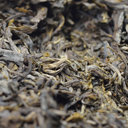 |
|
Commercial Description
Xi Gui Raw Pu-erh 2013 is quite changeful in taste. Maybe you are familiar with the typical bold and unconstrained features of raw tea, or have tasted the mild and gentle characteristic brought by our Wild Tree Pu-erh. But this Xi Gui tea is a combination of both...
Ratings & Reviews
Page 1 of 1 page with 4 reviews
 80 Aroma: 7/10 Flavor: 3/5 Value: 3/5
80 Aroma: 7/10 Flavor: 3/5 Value: 3/5Whiskey (45 reviews) on Dec. 2nd, 2018
I'd rate this one pretty high, but most of the flavor is in the breath, not in the taste itself. I think it's a matter of personal preference as to whether one prefers one, the other, or both. I prefer both because it gives more of a rounded experience. This just doesn't have enough in the taste to appeal to me. There is a delectable mouthwatering sensation. It's one of the strongest of all the teas that I've had. There's some astringency, but it settles out very evenly when the mouthwatering quality sets in. The bitterness here is stronger than in other teas. I'd call it pointed because it's not a blanketed quality, but when it peaks in the mouth, it's quite strong. I actually don't enjoy it. I prefer something softer. There is something of a sugary note but it's not in the forefront. It may come out more prominently after aging, but I've had mixed results with that particular note when aging teas. It's not one that I find very reliable when it comes to sticking around. The fruity note in the breath is something that I think may develop more over time, and it is a delicious note. But, it's not a taste at this point, and even the sensation in the breath isn't very strong. Even though this is the more expensive of the two, I opted to purchase a cake of Fengqing Ancient Tree Spring Chun Jian Raw Pu-erh Tea Cake (2012) instead. I just preferred the fact that there was more presence in the taste itself, as opposed to the breath. I don't think that the Xi Gui is a bad tea, but I think that it would benefit from more time, while the Fengqing Ancient Tree Spring Chun Jian is one that I find delicious right now. The Fengqing Ancient Tree Spring Chun Jian is one year older, but in my experience aging raw pu-erh, one year doesn't make enough of a difference to explain the divide here. I think the leaves used for the Xi Gui are just rougher to start. They may result in a more refined tea later on, but for the time being, I don't find it as enjoyable as the Fengqing Ancient Tree Spring Chun Jian.
(As a note, I've brewed all my samples of the Xi Gui (I had more than two that I purchased) using the Eastern method directions provided by TeaVivre.)
 83 Aroma: 8/10 Flavor: 5/5 Value: 3/5
83 Aroma: 8/10 Flavor: 5/5 Value: 3/5Alex (45 reviews) on Jul. 19th, 2018
My favorite pu-erh so far out of the half a dozen or so I've tried, but it's also the most expensive. It does smell fruity (not sure what kind of fruit), but it also has a sweet rocky aroma, sort of like smelling the aftertaste of a good Wuyi oolong. Once brewed, it's strong and sweet without being astringent or bitter. The flavor is both fruity and earthy. I don't know how to describe it in any more detail than that. It's a weird tea, and I'm glad I tried it. My only complaint is that unlike a lot of oolongs and especially pu-erh which can resteep forever when brewed in a gaiwan, this ran out of flavor fairly quickly. The price also seems high, but I don't really know enough about pu-erh to be able to tell what is or isn't worth its price.
 70 Aroma: 7/10 Flavor: 4/5 Value: 3/5
70 Aroma: 7/10 Flavor: 4/5 Value: 3/5Kelsey (142 reviews) on Oct. 9th, 2014
My entire thought while drinking this was "nothing beats knowing that I'm drinking tea from an ancient tea forest; how cool is that?!" I liked it! It was a nice brew.
The dried leaf does a have a fruity smell, like Alex suggested, not sure if I'd call it grape. The tea once brewed didn't have much of an aroma, it was subtle and didn't smell like most pu-erh I've had.
Loved the quality of the tea overall, nice and smooth. The price might be a little to high for me to drink regularly, I'm glad I got to try it this once!
 80 Aroma: 8/10 Flavor: 5/5 Value: 3/5
80 Aroma: 8/10 Flavor: 5/5 Value: 3/5Alex Zorach (1453 reviews) on Aug. 14th, 2014
Hello, concord grape! The dry leaf of this tea smells initially like a sweet, tippy spring green tea, but this is followed by an intense fruitiness strongly suggestive of concord grape. Tea often smells like grape to me, but more often it is the muscatel grape of Darjeeling or Bai Hao oolong, or the deep raisin notes of some Assam, or the wine-like tones of Keemun. TeaVivre's Fengqing Wild Tree Yesheng Raw Pu-erh Tea Cake 2013 also resembled concords to me, but not so much as this one...I can't get over how intense and direct the similarity is.
Upon brewing, produces a surprisingly mellow cup...this is the most mellow Pu-erh I've tried that has not been aged appreciably. It tastes as smooth as some stuff that is 5-ish years old. Body and flavor is oolong-like...the aroma not so much.
The concord grape quality is less present upon brewing, but it emerges here and there. I found it persisted even through later steepings, often emerging as a surprise note in the finish. The aroma is a bit mushroomy (in a good way, almost like shiitake or black mushrooms), and there's a toastiness like a more typical Chinese pan-fired green tea.
Enjoyable and easy drinking. Does not resteep as well as I'd expect though. Using TeaVivre's brewing recommendation, with a long first steep (6-10 min) I found most of the flavor was lost after two cups...that left me unsatisfied. I found I actually prefered a much shorter initial steep. Although the tea comes out weaker, it is still flavorful, aromatic, and pleasant to drink, and this leaves more to easily make 3 or more steeps.
I didn't try gong fu brewing, but I bet this tea would work well with it.
More so than any other unaged raw Pu-erh that I've tried, this cake tastes like it has been significantly aged. If I had to guess its age, sampling it blind, I would probably guess 5-7 years, but it tastes as smooth as some older teas. It also has some of those pleasant earthy and mushroomy tones that I normally only encounter in aged teas.
This tea is not cheap, $100 for a 357g cake. Given how great it tastes as-is, I think it might be worth the price, except for how its flavor gave out too quickly on resteeping. I also strongly preferred TeaVivre's Fengqing Wild Tree Yesheng Raw Pu-erh Tea Cake 2013. That cake is cheaper, and I liked it better...it also resteeped MUCH better.
I do recommend sampling it though...the concord grape fragrance of the dry leaf is remarkable and I think that alone makes it worth trying!
Page 1 of 1 page with 4 reviews
More Raw (Sheng) Pu-erh from Yunnan, China from TeaVivre
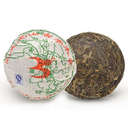
2006 Fengqing Raw Pu-erh Tea Tuocha
| Style: | Raw (Sheng) Pu-erh |
| Region: | Fengqing, Yunnan, China |
| Caffeine: | Caffeinated |
| Leaf: | Compressed |
88
3 Ratings
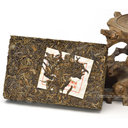
Fengqing Zhuan Cha Raw Puerh Brick Tea 2005
| Style: | Raw (Sheng) Pu-erh |
| Region: | Fengqing, Yunnan, China |
| Caffeine: | Caffeinated |
| Leaf: | Compressed |
57
3 Ratings
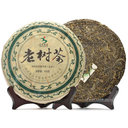
Fengqing Old Tree Raw Pu-erh Cake Tea 2013
| Style: | Raw (Sheng) Pu-erh |
| Region: | Fengqing, Yunnan, China |
| Caffeine: | Caffeinated |
| Leaf: | Compressed |
2 Ratings
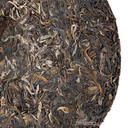
Fengqing Paddy Flavor Raw Pu-erh Cake Tea 2006
| Style: | Raw (Sheng) Pu-erh |
| Region: | Fengqing, Yunnan, China |
| Caffeine: | Caffeinated |
| Leaf: | Compressed |
2 Ratings

